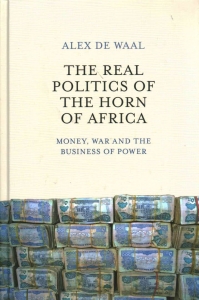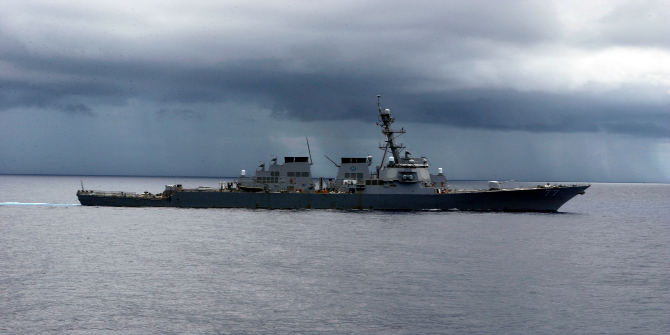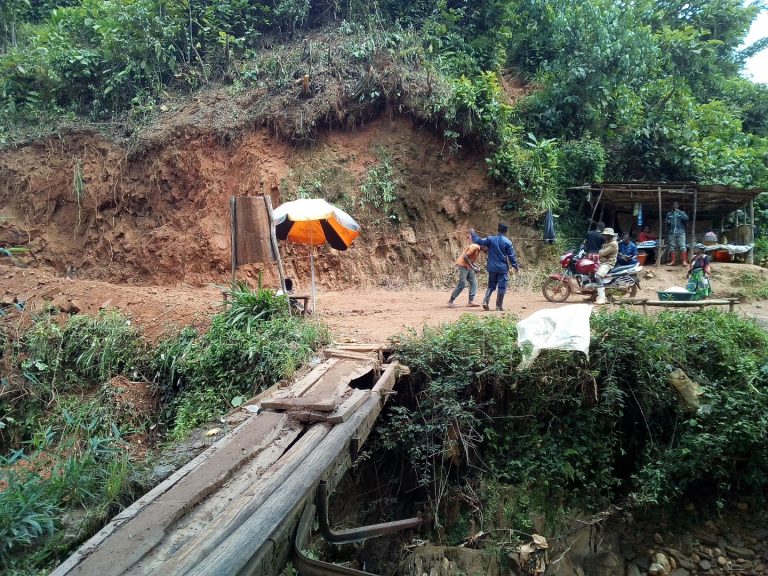The Real Politics of the Horn of Africa offers an in-depth examination of the region, understandings its politics as a ‘marketplace’ in which the currency is both money and violence, underpinned by oil exports, aid funds and western military assistance. Alex de Waal draws upon his vast, encyclopaedic knowledge of the region in a powerful book that leaves one less than optimistic about the future of the Horn, writes Duncan Green.
The Real Politics of the Horn of Africa: Money, War and the Business of Power. Alex de Waal. Polity. 2015.
 There’s a balance to be struck in writing any non-fiction book. Narrative vs information. How often do you return to the overarching storyline, the message of the book, the thing you want the reader to take away? How much information – facts, names, dates, events – do you include? Too much storyline and the book feels flimsy. Too much information and the reader gets lost in the detail.
There’s a balance to be struck in writing any non-fiction book. Narrative vs information. How often do you return to the overarching storyline, the message of the book, the thing you want the reader to take away? How much information – facts, names, dates, events – do you include? Too much storyline and the book feels flimsy. Too much information and the reader gets lost in the detail.
Alex de Waal struggles with this in The Real Politics of the Horn of Africa: Money, War and the Business of Power, not least because he knows so much – for decades he’s been both observer and participant in what he calls ‘the Horn of Africa’s cornucopia of violence and destruction’; he’s been in the room during the big peace talks, interviewing and befriending the region’s Big Men. The result is indigestible but brilliant. In this review I focus on the overview sections, rather than the case study chapters (covering Darfur, Sudan, South Sudan, Somalia, Somaliland, Eritrea and Ethiopia). Anyone who knows the Horn will get a huge amount from reading it.
The overall message is a powerful one – the category of ‘fragile and conflict affected states’ is largely useless: a description of what is missing to the eyes of a traditional Western view of development (institutions, stability, rule of law), not what is actually going on – how decisions are made, the ‘political circuitry’, the accumulation and loss of power and the use of violence.
De Waal’s unblinking gaze seeks to describe that reality, warts and all. His big idea is that politics in the Horn is best understood as a marketplace, where the currency is money and violence. ‘States’ are largely imaginary constructs. What matters in politics is accumulating as large a ‘political budget’ as possible: the discretionary funds that any leader can spend on buying support, both in votes and guns. In contrast, ‘the public budget is a sideshow’. In the hierarchy of the political marketplace, everyone is both a buyer of smaller players and a seller to bigger ones: ‘Violence is a means of bargaining and signalling value within the marketplace.’
The political marketplace is not some dwindling vestige of patronage politics, quietly making way for democracies of political parties and programmes. Quite the opposite – ‘political markets are becoming dominant while state-building fades’. Whatever their instincts, leaders either have to play by the rules of the political marketplace or be cast out: ‘Most members of the political elites of north-east Africa have come to resemble gangsters rather than civic political leaders.’ Along the way, state boundaries have largely dissolved as political entrepreneurs compete across the region in a form of brutal Darwinism.
De Waal argues that political marketplace systems arise where four conditions exist: political finance is in the hands of individuals; control over violence is dispersed or contested; political disputes are not resolved by institutions like the Law; and the countries are integrated into the global political and economic order in a subordinate position. He stretches the marketplace analogy as far as it will go and then some, analysing the actions of violent warlords as entrepreneurs, suppliers, buyers and producers of goods and services.
 Image Credit: Maritime Security Operation in the Horn (Marion Doss)
Image Credit: Maritime Security Operation in the Horn (Marion Doss)
How did this happen? Here’s where de Waal’s encyclopaedic knowledge of the region really shows in a masterly synthesis of a sequence of events that destroyed the ‘modernizing project’ of building states in the region: economic crisis and the retreat of the state in the 1980s; the opening of arms markets; the increasing number of potential patrons in the Middle East and elsewhere; the rise of political Islamism; and the new security agenda post-9/11. Would-be political entrepreneurs are swimming in sources of cash – aid is increasingly petty cash compared to the potential income from oil and mining, counter-terrorism and peacekeeping and crime (e.g. piracy and arms/human trafficking).
De Waal admits to ‘finding this political system fascinating and repugnant’, and the book makes for jaundiced, depressing reading. Everyone is on the make – politicians, lawyers, judges, civil society leaders (when they occasionally get a mention). International bodies like the African Union merely service the money circus. Politics is reduced to ‘who, whom and how much’. Aid just rearranges the incentives a bit.
A more positive finding is that by some measures, the political marketplace works rather better than what went before. Despite the threat of violence, dispersed political markets and the constant negotiations and accommodations produce a kind of bounded volatility where fewer people are killed than in the previous era (the regional body count peaked in 1988). It’s analogous to the creative destruction of the market, compared to the spectacular booms and busts of Central Planning.
Any reasons to be cheerful? Not many, I’m afraid. De Waal clutches at a few fairly standard straws – urbanisation, mass higher education, an emerging middle class and ICT. The message to the international community is even feebler – ‘take the money out of politics’, which is well nigh impossible according to his own analysis, and a vague appeal to human morality.
My conclusion? Read this book for its in-depth knowledge and brave iconoclasm, but don’t expect to come away with some big new narrative, still less any optimism for the future of the Horn.
Duncan Green is a strategic adviser for Oxfam GB and author of ‘From Poverty to Power’. He is also a Professor-in-Practice in LSE’s Department of International Development. Follow him on Twitter @fp2p.The original version of this review was published on From Poverty to Power.
Note: This review gives the views of the author, and not the position of the LSE Review of Books blog, or of the London School of Economics.






